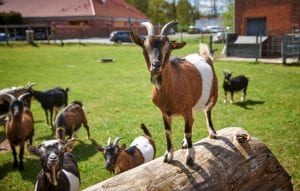For more information see: https://www.jobs.ac.uk/job/BQZ955/phd-studentship-animal-emotion-and-welfare-a-decision-making-and-computational-approach
The project:
An animal’s welfare depends on its emotional state (states elicited by rewarding and punishing events). Long-term ‘moods’ are particularly important determinants of animal welfare and may play a key role in guiding decision-making by biasing an individual’s expectations of decision outcomes, especially in ambiguous situations. Using a ‘judgement bias’ (JB) assay of decision-making under ambiguity that we have developed, many studies show that, like humans, animals in positive affective states behave as if anticipating positive outcomes under ambiguity, and vice versa for those in negative states.
However, there are also null and opposite results which may occur because affective states have a variety of different influences on decision-making. This project aims to disentangle these effects and hence to clarify findings in the literature, establish any constraints on using JB as an indicator of animal affect, and advance theory on the relationship between affect and decision-making. Computational modeling of data from operant studies of laboratory rodent decision-making will identify underlying parameters (e.g. prior experience of, and sensitivity to, reward and punishment) that influence decisions. There will also be opportunity to carry out parallel human studies to establish cross-species similarities and differences, and to develop theoretical computational models to investigate predictions, for example that experience of environmental conditions generates adaptive decision-making profiles.
The student will receive training in animal learning and behaviour, perceptual and affective psychology, and computational theory and modelling. They will learn to design decision-making tasks, to programme and use operant equipment, to implement computational, statistical, and trial-by-trial analysis of datasets, and to build theoretical computational models. Such skills will be invaluable within the increasingly mathematical context of modern biology.
Supervisors: Prof Mike Mendl, Prof Iain Gilchrist, Dr John Fennell, Dr Liz Paul (Bristol University)
Collaborator: Prof Peter Dayan (Max Planck Institute for Biological Cybernetics, Tübingen, Germany)



